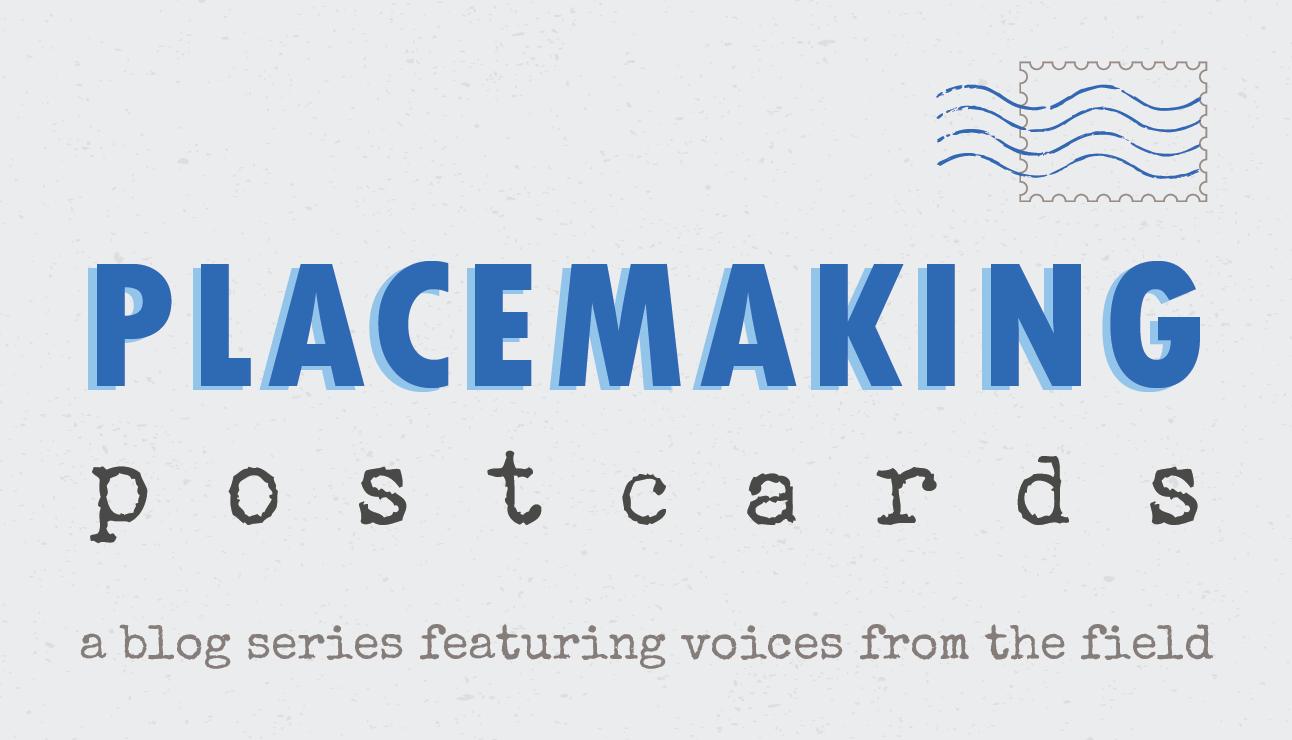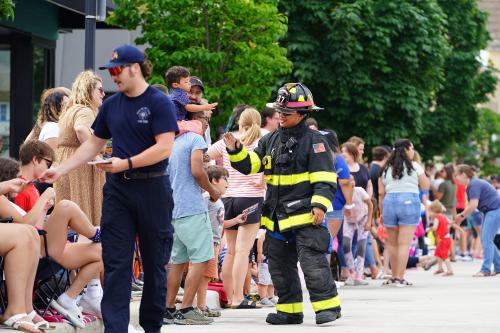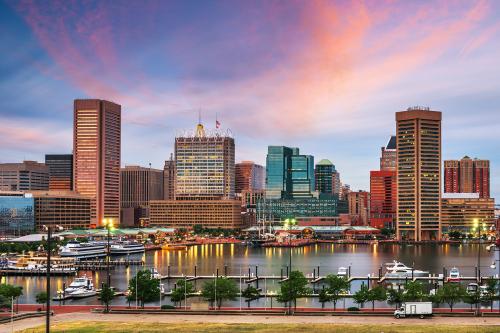Placemaking Postcards is a blog series from the Bass Center for Transformative Placemaking at Brookings where policymakers and practitioners guest-author promising placemaking efforts from across the U.S. and abroad that foster connected, vibrant, and inclusive communities. In line with the principle tenets of placemaking, the goal of the series is to recognize the community as the expert, highlight voices from the field, and to create a community of learning and practice around transformative placemaking.
The COVID-19 pandemic caused massive retail vacancies in downtowns across the United States. These vacancies are hard enough to fill in previously thriving urban areas, let alone in already struggling Rust Belt areas and small cities. Yet Euclid, Ohio—a majority-Black Rust Belt city of 47,000 people, located on Lake Erie just east of Cleveland—is testing a creative approach to filling its vacant storefronts and paving the way for business districts of all sizes to recover and grow from within.
Euclid is working toward both economic revitalization and inclusive outcomes by supporting local Black- and Latino- or Hispanic-owned small-scale manufacturing businesses on its Main Street. City officials are leading this holistic effort, which has four key elements: 1) training aspiring retail business owners in small-scale manufacturing; 2) identifying flexible commercial spaces; 3) providing targeted rent subsidies; and 4) promoting the space and the businesses in it. If successful, this effort has the potential to build wealth and opportunity among historically excluded residents while supporting a more vibrant downtown.
Why small-scale manufacturing matters for equitable growth
Startups and new businesses generate virtually all net job growth in America. These often begin as home-based businesses, and those that are successful move into commercial spaces.
Yet Black, Latino or Hispanic, Asian American, and other business owners of color face significant barriers to growth, including lack of access to capital and the need to rely on personal funds, credit challenges because of historic inequities, and the disproportionately negative impact of the pandemic on their businesses. These factors create even greater obstacles for a home-based microbusiness to grow into a storefront.
By supporting Black- and minority-owned small-scale manufacturing businesses, cities and towns can build an inclusive entrepreneurial ecosystem and achieve neighborhood revitalization. Small-scale manufacturers make products that are sold in storefronts and online—think hot sauce, handbags, or hardware. They often grow from one-person enterprises to having multiple employees, meaning they can be an important local source of jobs. They often have production and retail in the same space, making them a draw for visitors who can see things being made, which contributes to a sense of downtown connection and vibrancy. Additionally, small-product businesses often grow directly from local residents and entrepreneurs living within disinvested areas, making them an ideal business sector for expanding more equitable outcomes in entrepreneurship.
 Small business owners at a holiday market in Euclid. Source: City of Euclid.
Small business owners at a holiday market in Euclid. Source: City of Euclid.
For these reasons, the city of Euclid decided to join the Recast Leaders 2021 cohort—an intensive, “get-it-done” program that my organization, Recast City, runs to advance small-scale downtown manufacturing. Over the last 12 months, Euclid’s mayor and other officials worked to identify small-scale manufacturers in their city, understand their needs for growth, and implement specific short- and long-term actions to support this business sector and bring more energy and commerce to downtown.
How to grow small-scale manufacturing from the ground up
The first step in growing small-scale manufacturing is to assess residents’ needs and train aspiring retail businesses in skills pricing, marketing, e-commerce, distribution, and other aspects of running a product business. The city of Euclid began this effort by conducting interviews and small group discussions with local entrepreneurs to identify their challenges. They used “connectors”—people who are known and trusted in the community—to find business owners outside of the traditional economic development lists and who have never benefited from local programs nor been connected to programs at a local chamber of commerce or Small Business Development Center. Their engagement with aspiring business owners found that many home-based entrepreneurs wanted to grow their businesses but didn’t have the expertise or conditions to scale to retail spaces.
To address this gap, the city ran a small business competition, Recast Small Business, in 2021 and provided winners with a four-week online business readiness course and the opportunity to access flexible sub-leasing arrangements to transition their business into a storefront. Of the 20 local product business owners that participated in the competition, the city selected six businesses—all owned by people of color—as winners.
Next, city officials needed to identify flexible, affordable commercial space that graduates of the business readiness course could use to transition their business into a physical storefront. To do so, the city formed a public-private partnership with a downtown property owner to create storefronts that offer flexible retail space for small-scale manufacturing. This year, the city took a master lease on four vacant adjoining storefronts and established a $165,000 fund to subsidize the rent—enabling city officials to offer flexible sub-leasing arrangements to graduates of the business course and provide them with below-market lease rates in smaller spaces with shorter leases. The storefronts are currently being renovated and five product businesses have been selected for the spaces when they’re ready. The city has already started marketing these businesses in newspaper profiles, on the city website, in social media, and at the city’s holiday celebration as specially invited vendors.
Now, Euclid is building on the momentum of this first project by converting part of a former downtown school into a shared kitchen for food entrepreneurs. The school is currently being revitalized and is estimated to be ready later this year.
Civic leadership is critical for success
Euclid’s experience demonstrates the importance of city leadership—especially the mayor’s hands-on involvement—in advancing small-scale manufacturing on Main Street. Due to the sheer number of moving pieces that need to fall into place—the entrepreneurs that need to be identified and engaged, historically excluded communities reached, downtown property owners engaged, city budgets invested, spaces created and filled, and participating businesses promoted—support at the highest level of city government is crucial.
As local leaders seek to refill America’s vacant downtown storefronts, small-scale manufacturing is a crucial tool to do so equitably. Thanks to the support of dedicated civic leaders, Euclid is showing that a Rust Belt city can point the way.
The Brookings Institution is committed to quality, independence, and impact.
We are supported by a diverse array of funders. In line with our values and policies, each Brookings publication represents the sole views of its author(s).




Commentary
How Euclid, Ohio is filling vacant Main Street storefronts to recover from the pandemic
March 30, 2022